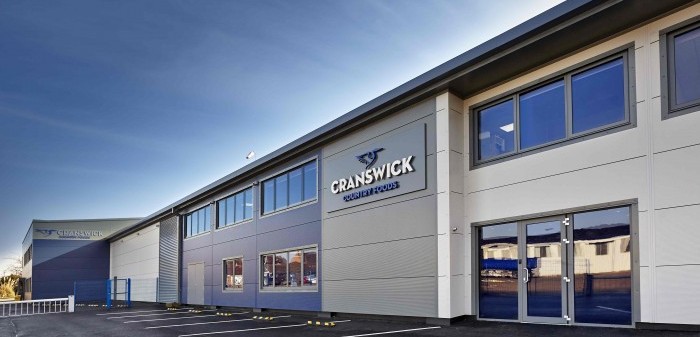Leading pork processor Cranswick has called for greater transparency across the food supply chain in response to growing concern among consumers over how their food is produced.
The Hull-based business has published a report on the subject in association with sustainability consultants Veris Strategies.
The report, endorsed by Professor Chris Elliott, who wrote the official report into the horsemeat scandal, concludes that growing consumer demand for new levels of transparency is set to disrupt the food industry in the wake of continued food scares.
As demand for provenance grows, transparency needs to be strengthened. The food industry needs therefore needs to demonstrate greater accountability across the entire supply chain from farm to fork, it concludes.
The report suggests that the food chain can make much better use of technology to improve its transparency. It predicts that in the future, shoppers will want to access real-time information on traceability issues from the convenience of their smartphone as part of an ‘open kitchen’ approach. Companies also need to embrace the data revolution and use secure technology, such as Blockchain, which can harvest tamper-proof data on the origin and authenticity of food products.
The report, ‘Radical Transparency: The rise of disruptive consumerism’, claims public trust in the food system is eroding to an all-time low, the report and aims to highlights the risks that food companies face if they don’t take ‘fundamental urgent action to address this’.
The report is available to download here
It draws on research conducted with consumers and industry experts and argues that the food industry needs to demonstrate greater accountability from farm to fork, not just to future-proof businesses but to give added assurances on hygiene, safety, ethics and sustainability standards.
High standards
Cranswick CEO Adam Couch said being able to prove the origin of where meat comes from is fast becoming a business-critical issue, and made it clear his company wants to drive this agenda forward.
“We already invest heavily in integrated supply chains to offer full traceability from farm to fork and insist on high standards pertaining to ethics and animal welfare,” he said.
“As a company we will continue to build on these commitments, but if we are to help futureproof the entire industry, we will have to work with others. To do this, we need to engage and raise awareness of the issue, which is why we have teamed up with Veris Strategies to produce this report.”
The company’s commercial director Jim Brisby said food manufacturers could do a lot more to meet the demands of the modern consumer. “Sustainability, provenance and health are now key issues for shoppers. The whole food supply chain needs to be more visible so people can reconnect with where their food comes from.
“We fully intend to be at the forefront of driving this agenda forward. I hope others will follow our lead and join us on this journey.”
Kate Cawley, creative director at Veris Strategies, said: “Through undertaking this report, it is clear the time for Radical Transparency is now. Collaboration will be essential to deliver transparency, and build trust, on a scale and at the pace consumers expect.”
Professor Chris Elliott OBE, director of the Institute for Global Food Security and faculty pro-vice chancellor at Queen’s University Belfast, commended Cranswick ‘for taking such bold and dynamic steps forward in terms of the transparency agenda’.
“The ultimate goal must be that our UK citizens will once more start to trust the food that they rely on. Trust that has been lost due to scandal after scandal. To me, Cranswick is doing exactly the right thing at the right time and I can only hope others will follow suit,” he said.
About Cranswick
- Cranswick produces fresh pork, gourmet sausage and bacon to premium cooked meats, charcuterie meats and gourmet pastry, operating 17 production facilities across the UK.
- The integrated business employs over 10,000 people with annual revenues in excess of £1.2 billion.
- It is ranked Tier One by the BBFAW (the Business Benchmark on Farm Animal Welfare) – the leading global measure of company performance on farm animal welfare.
- It has signed up to the Courtauld Commitment 2025, an ambitious 10-year voluntary agreement bringing together leading organisations from across the entire food chain to reduce the environmental impact of food and drink across the supply chain.




